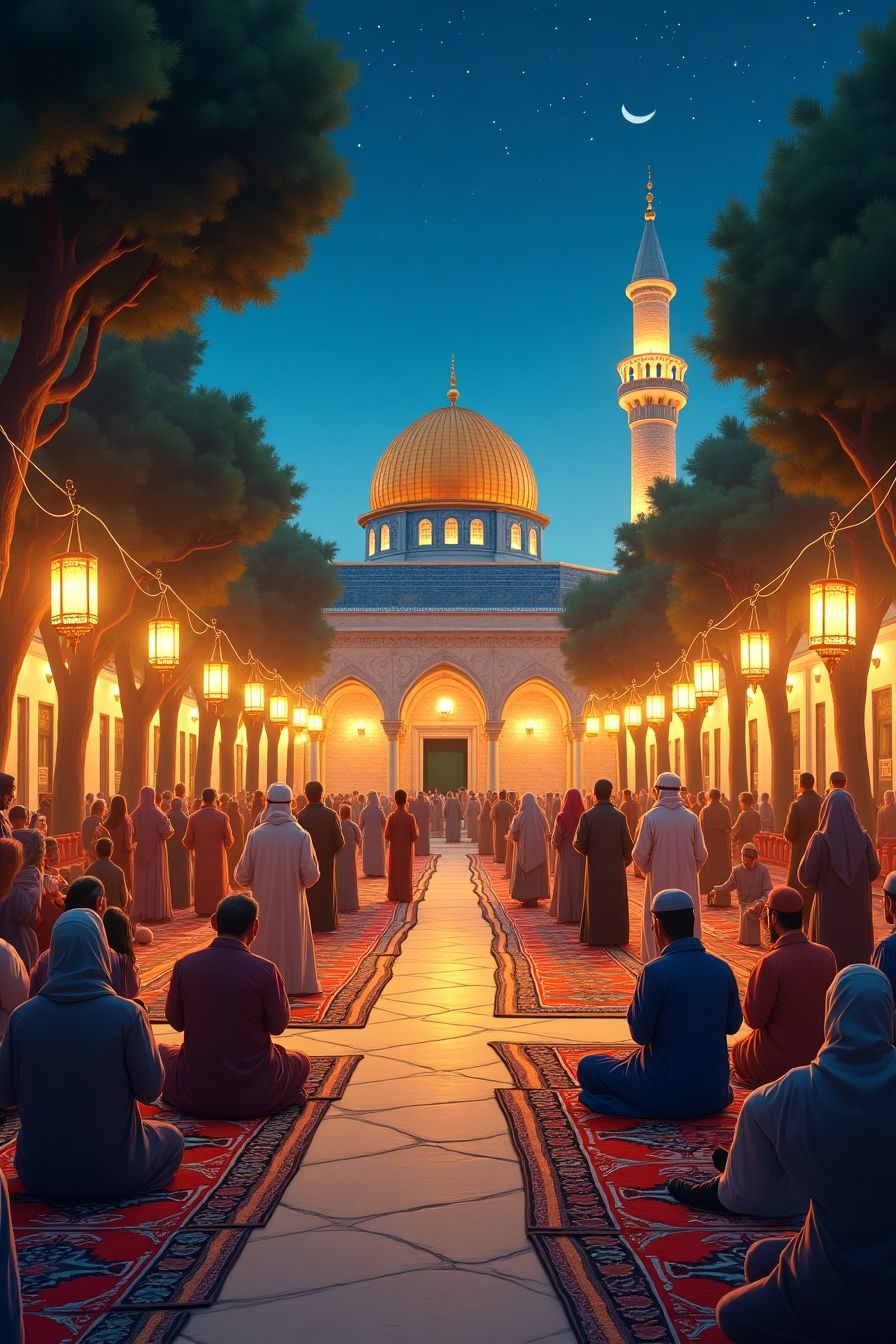Explore the significance of Eid, its rich traditions, and how it brings communities together in a celebration of faith and gratitude.

Eid is one of the most joyous and spiritually uplifting festivals in Islam, celebrated by millions of Muslims worldwide. There are two main Eids in the Islamic calendar: Eid ul-Fitr, which marks the end of Ramadan, and Eid ul-Adha, which commemorates the sacrifice of Prophet Ibrahim (Abraham). Both celebrations symbolize faith, gratitude, and community bonding. Let’s explore the significance, traditions, and spirit of Eid.
The Significance of Eid
Eid is not just a festival; it is a reminder of faith, humility, and compassion. It brings people together in worship, feasting, and acts of charity. While Eid ul-Fitr is known as the “Festival of Breaking the Fast,” Eid ul-Adha is the “Festival of Sacrifice,” reflecting the ultimate test of faith faced by Prophet Ibrahim.
1. Eid ul-Fitr – The Celebration of Gratitude
Eid ul-Fitr marks the conclusion of Ramadan, the holy month of fasting. It is a time to express gratitude for the strength and patience shown throughout the month. The day begins with a special Eid prayer (Salat al-Eid), followed by gatherings with family and friends. Traditional sweets and dishes are prepared, and Zakat al-Fitr (charity) is given to the less fortunate, ensuring that everyone can partake in the festivities.
2. Eid ul-Adha – The Festival of Sacrifice
Eid ul-Adha honors the willingness of Prophet Ibrahim to sacrifice his son in obedience to Allah’s command. Before the sacrifice could take place, Allah provided a ram as a substitute. This act of devotion is remembered by Muslims through the Qurbani (sacrifice) of livestock, the meat of which is shared among family, friends, and the needy. The festival also coincides with the Hajj pilgrimage, making it an especially sacred time for Muslims worldwide.
How is Eid Celebrated?
Though the customs may vary across cultures, the core elements of Eid remain universal:
1. Special Eid Prayers
On the morning of Eid, Muslims gather in mosques or open grounds for a special congregational prayer, seeking blessings and forgiveness.
2. Wearing New or Best Attire
Dressing in new or the finest clothes is a tradition that signifies purity, renewal, and respect for the occasion.
3. Giving Charity (Zakat and Sadaqah)
Eid emphasizes generosity and kindness. Muslims give Zakat al-Fitr before Eid ul-Fitr and perform Qurbani (sacrifice) during Eid ul-Adha, ensuring that the less fortunate can also celebrate.
4. Feasting and Family Gatherings
Eid is incomplete without grand feasts. Traditional dishes such as Sheer Khurma, Biryani, and Kebabs are prepared and shared with family and neighbors.
5. Visiting Relatives and Spreading Joy
Families visit each other, exchanging Eid greetings and gifts, particularly for children, who eagerly anticipate receiving Eidi (gifts or money).
Eid Around the World
Eid is celebrated with unique traditions in different countries:
- Saudi Arabia & UAE: Lavish feasts, public celebrations, and grand prayers at the mosques.
- India & Pakistan: Vibrant bazaars, Mehndi (henna), and delicious sweets like Sewaiyan.
- Turkey: Known as Şeker Bayramı (Sugar Feast), where people enjoy sweet treats and visit elders.
- Indonesia & Malaysia: Traditional ketupat (rice cakes) and large communal prayers.
The Spirit of Eid
Beyond the celebrations, Eid teaches valuable lessons:
- Gratitude: Thankfulness for Allah’s blessings.
- Generosity: Helping those in need.
- Forgiveness: Rebuilding relationships and spreading kindness.
- Unity: Strengthening bonds within the community.
Conclusion
Eid is a time of immense joy, reflection, and unity. Whether celebrating Eid ul-Fitr or Eid ul-Adha, the festival embodies the essence of faith, compassion, and gratitude. As families gather, prayers are offered, and love is shared, Eid serves as a beautiful reminder of the blessings in life.
Wishing you and your loved ones a blessed and joyful Eid Mubarak!

